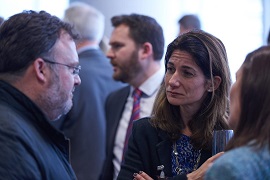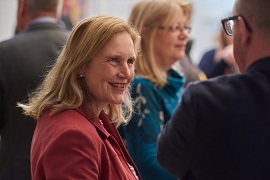A bursar has many responsibilities but, above all, he/she manages a department which, in essence, allows a school to carry out its primary function of educating children. This a demanding role and to be successful, a bursar will require skills in tact and diplomacy, together with considerable patience and tolerance.
The overwhelming majority of bursars are on a second or third career and governors will be looking for existing financial and management skills that are easily transferable to the independent education sector.
Bursars come from a very wide variety of backgrounds including the military (about one third of bursars have served in the Armed Forces), accountancy (also about one third) as well as banking, financial services, manufacturing, hotel management and engineering amongst others.
Bursars possess a wide range of qualifications and the relevance of these will depend upon the requirements of the governors. No bursar will survive without a reasonable level of financial experience and acumen but a formal accountancy qualification is not essential. The general experience required for a bursar is as follows:
- business or administrative experience adequate for management of the day-to-day affairs of the office;
- ability to produce budgetary estimates, reports, cash flow and financial and statistical summaries;
- knowledge of the principles and methods of book-keeping and their adaptation to various purposes, including the preparation of final accounts;
- experience of procedures at meetings - notices, agenda, minutes, conduct of meetings and secretarial practice;
- knowledge of the law and practice relating to Income Tax, PAYE, benefits in kind and VAT;
- a working knowledge of the law with regard to parental contracts, leasing of school properties and landlord responsibilities, employment legislation, commercial law covering such matters as contracts, copyright and data protection;
- an understanding of investment procedures;
- knowledge of methods of purchasing including buying through consortia;
- an understanding of building materials and of the details of construction of buildings and the causes of, and remedies for, defects in buildings;
- knowledge of rates, town and country planning, planning permission procedures for alterations and new buildings;
- ability to draw up specifications for general repairs, minor alterations and decorations and, if the work is done by direct labour, to make estimates of cost and ability to draw simple plans and sketches; and
- knowledge of principles and practice in relation to: electrical and gas installations, metering and supply; central heating and hot water supply; protection of personnel and buildings from fire; domestic sanitation and sanitary fittings; energy management and conservation.
Nobody can be expert in all these topics and one of the secrets of success is knowing when to ask for advice and where to obtain that advice. Notwithstanding competition between schools, bursars are very supportive of their colleagues and friendly advice is not hard to find.



